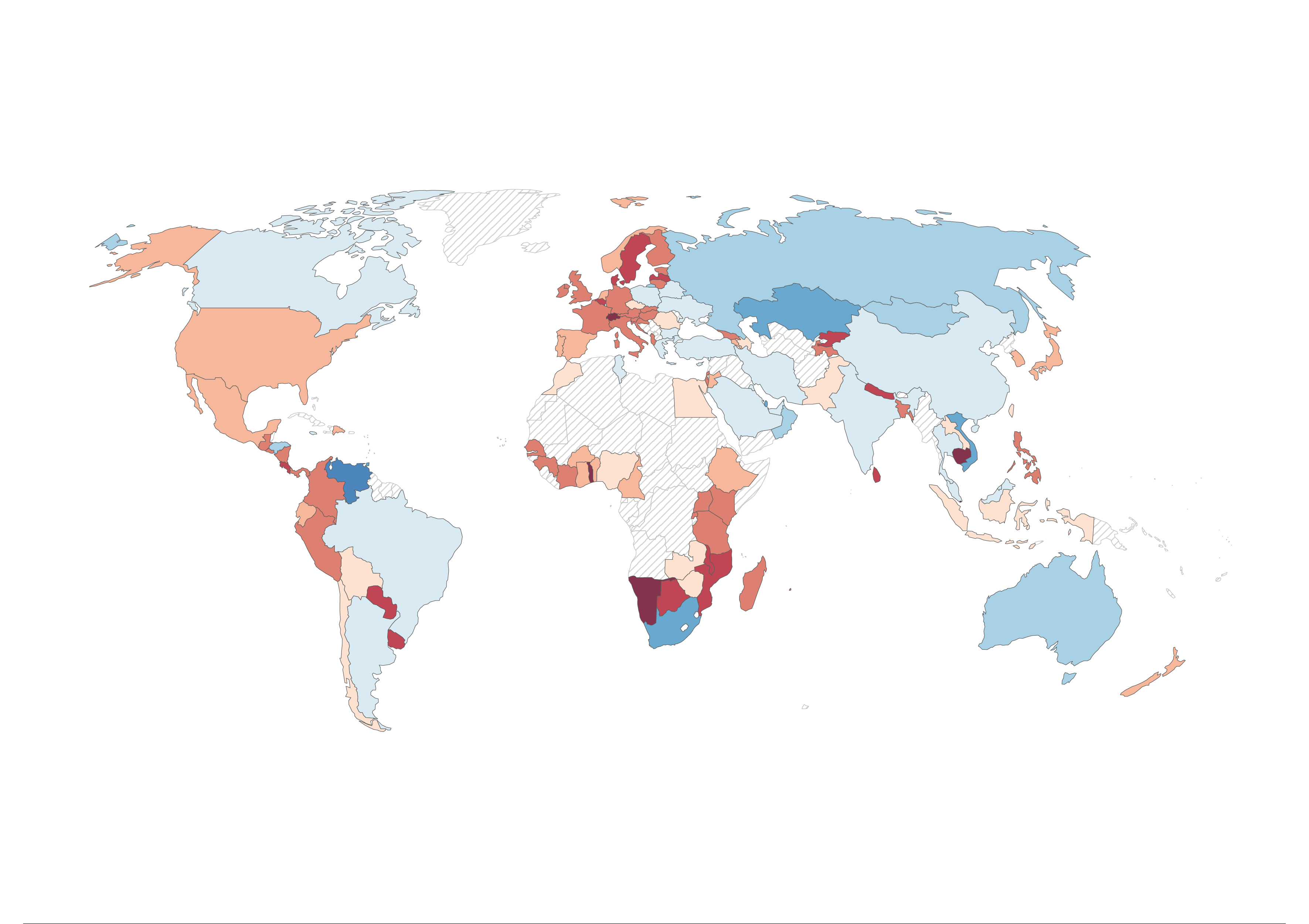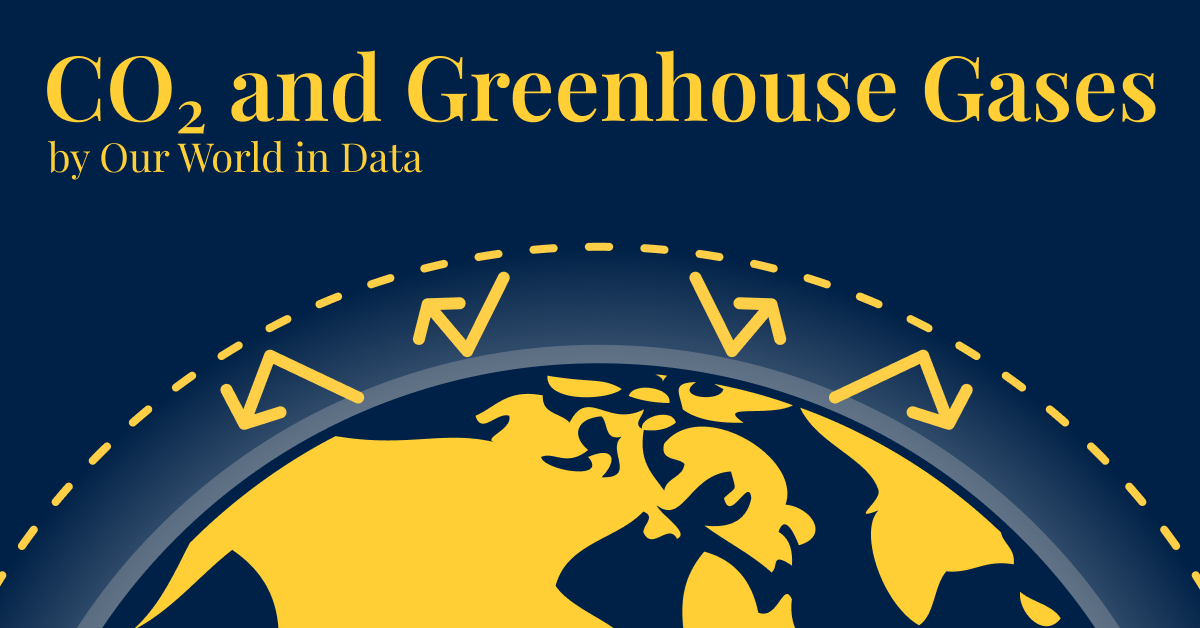Consumption-based CO₂ emissions

What you should know about this indicator
- Consumption-based emissions attribute the emissions generated in the production of goods and services according to where they were consumed, rather than where they were produced.
- The data is calculated by adjusting 'production-based' emissions (emissions produced domestically) for trade: Consumption-based emissions equals production-based emissions, minus emissions embedded in exports, plus emissions embedded in imports.
- If a country's consumption-based emissions are higher than its production emissions it is a net importer of carbon dioxide. If its consumption-based emissions are lower, then it is a net exporter.
- Consumption-based emissions are not available for all countries because not all countries have sufficient, high-quality trade data. But those without complete data are a small fraction (3%) of the global total.
- This data measures carbon dioxide (CO₂) emissions from fossil fuels and industry and does not include emissions from land use change, deforestation, soils, or vegetation.
- Emissions from international aviation and shipping are not included in any country or region's emissions. They are only included in the global total emissions.
Related research and writing
Sources and processing
This data is based on the following sources
How we process data at Our World in Data
All data and visualizations on Our World in Data rely on data sourced from one or several original data providers. Preparing this original data involves several processing steps. Depending on the data, this can include standardizing country names and world region definitions, converting units, calculating derived indicators such as per capita measures, as well as adding or adapting metadata such as the name or the description given to an indicator.
At the link below you can find a detailed description of the structure of our data pipeline, including links to all the code used to prepare data across Our World in Data.
Notes on our processing step for this indicator
- Data on global emissions has been converted from tonnes of carbon to tonnes of carbon dioxide (CO₂) using a conversion factor of 3.664.
- Emissions from the Kuwaiti oil fires in 1991 have been included as part of Kuwait's emissions for that year.
- Country's share of the global population is calculated using our population dataset, based on different sources.
- Each country's share of global CO₂ emissions from flaring has been calculated using global CO₂ emissions from flaring provided in the Global Carbon Budget dataset.
Reuse this work
- All data produced by third-party providers and made available by Our World in Data are subject to the license terms from the original providers. Our work would not be possible without the data providers we rely on, so we ask you to always cite them appropriately (see below). This is crucial to allow data providers to continue doing their work, enhancing, maintaining and updating valuable data.
- All data, visualizations, and code produced by Our World in Data are completely open access under the Creative Commons BY license. You have the permission to use, distribute, and reproduce these in any medium, provided the source and authors are credited.
Citations
How to cite this page
To cite this page overall, including any descriptions, FAQs or explanations of the data authored by Our World in Data, please use the following citation:
“Data Page: Consumption-based CO₂ emissions”, part of the following publication: Hannah Ritchie, Pablo Rosado and Max Roser (2023) - “CO₂ and Greenhouse Gas Emissions”. Data adapted from Global Carbon Project. Retrieved from https://ourworldindata.org/grapher/consumption-co2-emissions [online resource]How to cite this data
In-line citationIf you have limited space (e.g. in data visualizations), you can use this abbreviated in-line citation:
Global Carbon Budget (2023) – with major processing by Our World in DataFull citation
Global Carbon Budget (2023) – with major processing by Our World in Data. “Consumption-based CO₂ emissions – GCB” [dataset]. Global Carbon Project, “Global Carbon Budget” [original data]. Retrieved July 26, 2024 from https://ourworldindata.org/grapher/consumption-co2-emissions




